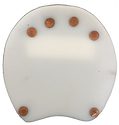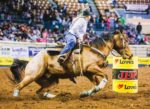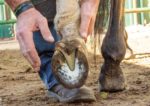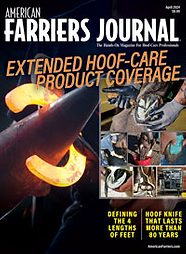Advertise Follow Us
Articles by Heather Smith Thomas
Products can provide frog support, cushion the sole and reduce concussion
Read More
Strategies for Working with Difficult Horses
Get in tune with horses by understanding their perspective
Read More
Equine Body Work Benefits Hooves
Making uncomfortable horses comfortable makes farriers’ jobs easier and improves feet
Read More
Overcome “Bad” Horses in Your Hoof-Care Practice
Gaining trust and nurturing your relationships with horses will make your job easier
Read More
Utilizing Pads in Your Footcare Practice
Proper use and application is crucial for the well being of the horse
Read More
Horses Benefit From Frog and Sole Support
Pour pads can provide the necessary help for a variety of issues
Read More
How to Deal with Softhearted Clients and Spoiled Horses
Farriers offer advice on how to break bad habits of both owners and horses
Read More
Hoof Care for the Nervous Horse
Patience is the key to earning the trust and respect of anxious horses
Read More
















